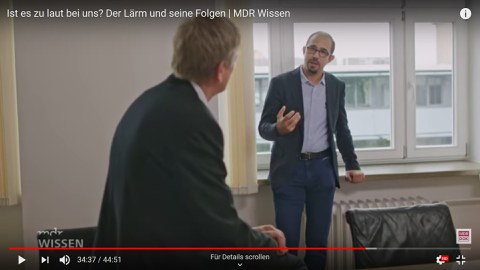Mar 22, 2021
TV reports and perceptual experiments in cooperation with Cluster D

MDR TV Report: Is is too loud here? Noise and its consequences.
TV Report about Motorcycle Noise
Motorcycle noise has become a very topical issue in recent years. Society and legislators are facing a lack of scientific knowledge in this area with which to react effectively. One of our fellows, Omid Samani (project D1), and his scientific supervisor, Prof. Altinsoy, carried out a study which included collecting some acoustic recordings of motorcycles last year. In a recent interview, MDR spoke to Prof. Altinsoy about this study on the program Exakt: “Motorradfahrer - Gibt es ein Recht auf Lärm?” (“Motorcyclists - Is there a right to noise?”). The study results show that the psychoacoustic variables describe the perceived annoyance better than the sound pressure level. In particular, the frequency content and the changes in noise over time are decisive factors for the level of annoyance.
You can find more information about the program here.
TV report - Noise and its consequences
The change in the composition of the vehicle fleet has a significant impact on the emissions from road traffic (especially traffic noise, pollutant emissions) and on our health. In the Boysen-TU Dresden Research Training Group, we are researching the health consequences of noise pollution. MDR conducted an interview with Prof. Seidler and Prof. Altinsoy on this topic on the program “Ist es zu laut bei uns?” (“Is it too loud here?”).
You can watch the report here.
Online perception experiments
In consideration of the ongoing corona-related restrictions, Omid Samani (Project D1) has been conducting perception experiments online. Project D1 examines the effects of the different mobility scenarios of the future on the nuisance caused by traffic noise, whereby perception experiments are an important part of the project.
Online experiments make it possible for test subjects to participate in the experiments remotely. In these experiments, the test subjects listen to various traffic noises and assess their degree of annoyance. The program PsychoPy, which is based on the Python programming language and is mainly used for neuroscientific and experimental psychology research, is used to carry out the experiments.
